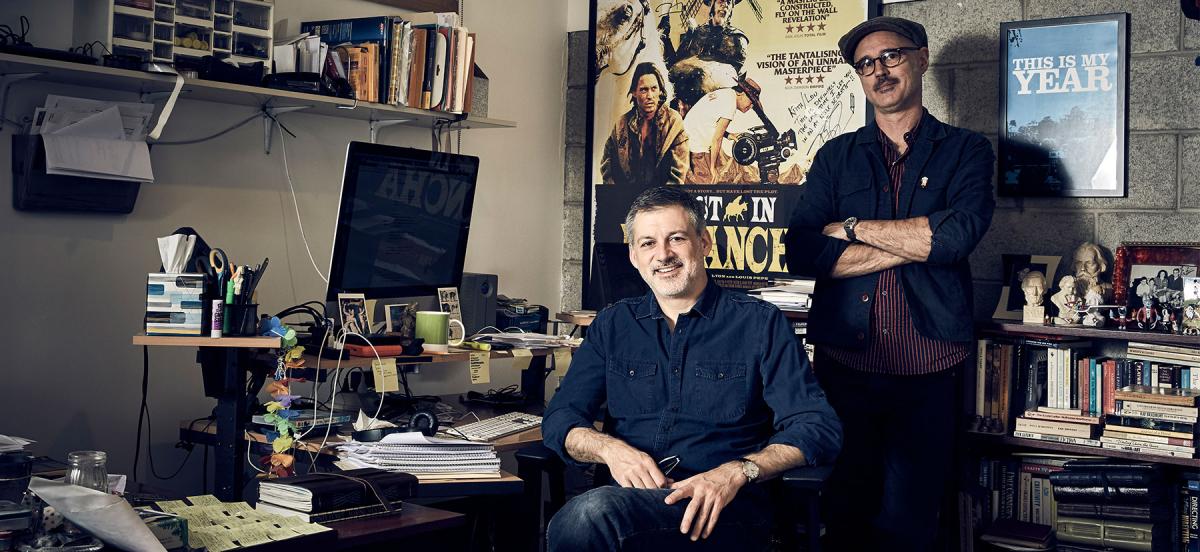Documenting A Director’s Dream

Keith Fulton '88 (right) and his production partner and husband Louis Pepe in their L.A. editing studio. Photo by Christopher Fragapane.
Details
In his new documentary, He Dreams of Giants, Keith Fulton ’88 continues an exploration into the psyche of ex-Monty Python-er Terry Gilliam that began with his 2002 film festival hit Lost in La Mancha.
Documentary filmmaker Keith Fulton ’88 had a pretty sweet gig going, shooting “making-of” documentaries that accompanied DVD releases of major films such as Terry Gilliam’s12 Monkeys and David O. Russell’s Three Kings. Then an extraordinary thing happened. He and his production partner (and now husband) Louis Pepe were filming the making of The Man Who Killed Don Quixote, another ambitious project by ex-Monty Python-er Gilliam ... and the film fell apart. Injuries, drastic weather, damaged sets, and other setbacks piled up, until Gilliam had to pull the plug. Fulton and Pepe, however, kept filming—and made Lost in La Mancha, a feature-length documentary about the cinematic disaster that became a smash at film festivals in 2002 and was sold to distributors all over the world.
"We didn’t expect it to be a big hit,” says Fulton. “It was exciting and shocking. We didn’t know how much appetite there was for schadenfreude out there.”
After graduating from Haverford with a B.A. in art history, Fulton met Pepe in Temple’s film production MFA program in 1990. They clicked immediately, and have been collaborating in art and life ever since.
The success of their Gilliam doc opened up new opportunities for Fulton and Pepe, who are based in Los Angeles, and they’ve continued to make both documentaries like 2016’s The Bad Kids and a 2005 fiction feature, Brothers of the Head, a mockumentary about conjoined twins who become rock stars.
And when Gilliam finally made his Don Quixote movie more than a decade and a half after Lost in La Mancha, Fulton and Pepe were right alongside him to make their new documentary, He Dreams of Giants.
Fulton, 53, notes that while both Lost in La Mancha and He Dreams of Giants are technically about Gilliam’s film, they’re really an ongoing study of Gilliam as an artist and a man. “How many documentary filmmakers have the opportunity to get this close to a person and do a sort of longitudinal study?” he asks, noting that the new doc isn’t simply a sequel. “The portrait of him is more intimate, more personal, he was more open about his fears of his own mortality, the expectations people have. After all this time, he trusts us completely.”
Now, Fulton is packing his suitcase for festival premieres and events for Giants. He’s grateful for the opportunity to show his work to audiences around the world, but in the back of his mind he’s already gestating what’s next. Whatever that project ends up being, Fulton says all of his work is an outgrowth of something he learned while at Haverford: “I learned that I could sit in an editing room for hours on end and be the happiest person on Earth.”



